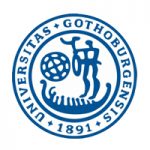项目介绍
About the course
Students on the DPhil in Experimental Psychology will carry out independent research under the supervision and guidance of principal investigators and researchers within a research group or lab. Areas of study include behavioural neuroscience, developmental psychology, perception and cognition, psychological and brain health, and social psychology.
The Department of Experimental Psychology runs a number of seminar programmes and all graduate research students are encouraged to attend talks and presentations relevant to their research interests. On completion of the course, students are expected to have an in-depth knowledge of their field of research and to have made a contribution to scholarship in that area. They are also expected to have acquired research skills that will enable them to pursue independent research in psychology.
The majority of our DPhil students are expected to be admitted for full-time study, referred to in the timeline below as FTE (full-time equivalent) study. A small number of part-time students may be admitted to the DPhil in Experimental Psychology. If you apply for admission to the part-time course you will be required to show that your proposed DPhil research topic is suited to part-time study and that the supervisor agrees with the part-time schedule.
Further information about part-time study
Part-time study is expected to take place at 50% of the intensity of full-time study, so all timescales below referring to full-time equivalent study (FTE) are normally doubled for students pursuing the part-time DPhil programme. The attendance requirement will be a minimum of 30 days University-based work per year. This will be spread across the academic year to be a minimum of ten days based in the department each term. However, attendance is likely to be higher and will be determined by the demands of the individual DPhil research project and will be agreed with the applicant as part of the admissions process.
Supervision
The allocation of graduate supervision for this course is the responsibility of the Department of Experimental Psychology and it is not always possible to accommodate the preferences of incoming graduate students to work with a particular member of staff. Under exceptional circumstances a supervisor may be found outside the Department of Experimental Psychology.
Students normally meet with their primary supervisor at least every two weeks and with their secondary supervisor at least once a term.
In the case of students who require specific help to adjust to an academic programme or to a new range of skills, the supervisor will work with them to ensure that they have additional support. Supervision and guidance may also include co-supervision from other collaborating groups or labs, both within the department or from other departments and faculties within the university or from another institution.
Assessment
First year of full-time study (part-time equivalent: years 1 and 2)
You are initially registered as a Probationary Research Student (PRS status). During your first year of FTE study, you are expected to attend courses, lectures and seminars that will enable you to gain the most out of your time at Oxford and assist you with the design and analysis of your own area of research. These will typically include:
- graduate statistical workshops
- skills training courses eg in MATLAB and fMRI methods
- analysis of research methods.
The Medical Sciences Division also offers a large number of courses on transferable skills such as teaching and communicating scientific findings which you are encouraged to attend as a part of your DPhil studies.
You are expected to be fully integrated within your own chosen group or lab and attend group or lab meetings as well as attending related seminars and conferences.
Second year of full-time study (part-time equivalent: years 3 and 4)
You will be expected to transfer your status from PRS to DPhil before the end of your fourth term of FTE study. For this, you will be required to submit a written report summarising your progress to date, which you will then discuss and defend in an oral examination (a transfer viva).
Third and final years of full-time study (part-time equivalent: years 4 to 8)
During your third year of FTE study, you will need to confirm your DPhil status through a formal assessment to ensure that you are on course to complete your studies within the three- to four-year time frame. You will be required to give a presentation and attend an interview. Finally, your studies will conclude with the submission of a thesis (maximum 100,000 words) and an oral examination, your final viva voce.
Assessment of your progress on the course is monitored through termly progression reports and at three key stages:
- transfer of status
- confirmation of status
- thesis submission.
You will need to have successfully completed all three stages to be awarded a DPhil in Experimental Psychology from the University of Oxford.
Graduate destinations
A majority of DPhil students remain in academia. Others go on to pursue careers in consultancy and government.
Changes to this course and your supervision
The University will seek to deliver this course in accordance with the description set out in this course page. However, there may be situations in which it is desirable or necessary for the University to make changes in course provision, either before or after registration. The safety of students, staff and visitors is paramount and major changes to delivery or services may have to be made in circumstances of a pandemic (including Covid-19), epidemic or local health emergency. In addition, in certain circumstances, for example due to visa difficulties or because the health needs of students cannot be met, it may be necessary to make adjustments to course requirements for international study.
Where possible your academic supervisor will not change for the duration of your course. However, it may be necessary to assign a new academic supervisor during the course of study or before registration for reasons which might include illness, sabbatical leave, parental leave or change in employment.
For further information please see our page on changes to courses and the provisions of the student contract regarding changes to courses.
录取要求
-
a first-class or strong upper second-class undergraduate degree with honours in psychology or a related discipline that is relevant to your proposed research.
-
You do not need to have a previous master’s degree to apply for this course. However, if you wish to be considered for the ESRC +3 funding then you will need to demonstrate that core training requirements have been met for entry to this course, eg by a recognised master’s degree. Please see the ‘Funding and costs’ tab for details and/or contact the department for further advice.
联系方式
电话: +44 1865 270000相关项目推荐
KD博士实时收录全球顶尖院校的博士项目,总有一个项目等着你!






